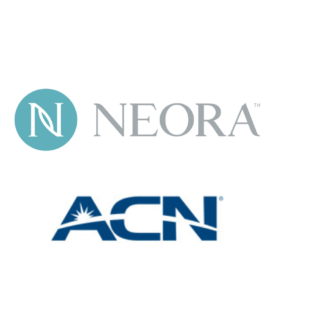It’s been a month since the Code Administrator of the Direct Selling Association (DSA) made it known to all member companies in a memo released July 29th stating “…it is the determination by this office that the sale of ingestible CBD (cannabidiol-based oils) products such as a foodstuff, nutritional supplement, tincture or for any digestible means for humans or animals is violative of the DSA Code of Ethics.”
The Association also stated in the memo that they are instituting a 90-day window for member companies selling CBD products during which they will not be cited for DSA Code of Ethics violations, and to account for additional time to permit the FDA to “articulate a path forward wherein sale of these products may be deemed legal.”
As for the 90-day grace period itself, which will elapse at the end of October, industry legal expert Spencer Reese, partner at Reese, Poyfair & Richards, believes the timeframe is not conducive to obtaining any final ruling on CBD from the FDA.
“I would be somewhat surprised to see the FDA have some new or concerted approach by the end of October,” said Reese. “This is not a new issue. The Epidiolex pre-IND (investigational new drug) was filed back in 2014, so everybody knows CBD oil was the subject of extensive investigations and research as a drug as far back as then. It’s no secret that the FDA’s position on CBD is, because of the pre-approval of Epidiolex, that CBD oil is a drug; however, the FDA has done nothing about regulating it.” (Cannabidiol is the active ingredient in Epidiolex, a prescription medicine used to treat seizures associated with Lennox-Gastaut syndrome or Dravet syndrome).
Company Reaction to Memo
Blake Schroeder, CEO of Medical Marijuana Inc.’s subsidiary Kannaway, feels that DSA has blurred the law in regard to CBD. “Kannaway became the first direct selling company to sell hemp-based cannabidiol (CBD) products in 2014, we are proud of our accomplishments through the years since then and many now follow our path. Among our most significant achievements was creating a pipeline for CBD products to be legally marketed and sold in the U.S., providing access to hundreds of millions of Americans. We believe the DSA has not accurately portrayed the law with respect to CBD, and we vehemently disagree with their position.
”We believe the DSA has not accurately portrayed the law with respect to CBD, and we vehemently disagree with their position.” – Blake Schroeder, CEO of Kannaway
In July, DSA member Young Living acquired Nature’s Ultra, which has more than 1,500 acres of hemp farms in Colorado. The company is aware of DSA’s statement and much like the Association is looking to the FDA to articulate a path forward on any specific details guiding the sale of CBD.
“When those regulations are published, Young Living is committed to aligning with FDA regulations as they continue to build a regulatory framework around the 2018 Farm Bill that legalized CBD,” said a Young Living spokesman. “Young Living is always committed to uphold and follow the law. “We are committed to making sure that our members have access to the best essential oil products, which is why we’re working with Nature’s Ultra, a wholly owned subsidiary partner, to ensure they can legally obtain CBD products from a trusted source. One of the reasons that we partnered with Nature’s Ultra was to leverage its CBD infrastructure and knowledge to bring CBD products to our members now even in the midst of a rapidly shifting regulatory landscape.”
DSA Provides Further Communication to Members
In a follow up response to Direct Selling News, the DSA stated that the Code Administrator who enforces the DSA Code of Ethics independently of the Association recently issued communication regarding the sale of ingestible products containing CBD. Shortly after, the Association provided the membership background materials on CBD and the legal and regulatory issues occasioned by marketing CBD as a dietary supplement.
In addition, the DSA stated they have taken the following actions:
- DSA management is engaging the Board of Directors to develop an Association position paper on CBD products, to help ensure full, fair and legal access to the marketplace for direct sellers
- Conducting information sharing regarding the legal and regulatory issues facing CBD-related products which included a session at the 2019 DSA Annual Meeting and information from discussions of the General Counsel Committee
Finally, given the immense interest in CBD and the regulatory uncertainty CBD faces from the US and state governments, the DSA reaffirmed the Code Administrator will not undertake enforcement actions until the 90-day window has elapsed, and may increase the abeyance depending on factors such as an FDA announcement.


